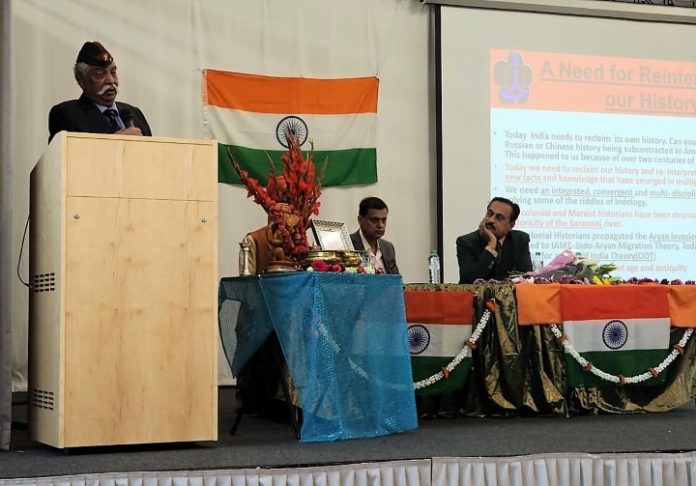London: Indians in London got a rousing applause from retired army generals – GD Bakshi and Tiny Dhillon on Sunday. The noted generals, who remain hyper active years after retirement, urged the diaspora to battle convoluted global narratives and emphasised how India is taking on Pakistani machinations in Kashmir.
Addressing the diaspora, General Tiny Dhillon spoke about Operation Maa, through which the Indian Army mainstreamed dozens of Kashmiri youth by finding them jobs and settling them in cities like Jammu and Srinagar. Giving an insight into the Indian Army initiative, Dhillon said: “We were able to save at least 50 Kashmiri youth who dropped their guns and came back to their families… During encounters we found that most Kashmiri youth always carried a letter with them which was mostly addressed to their mothers and seldom to other members of the family”.
He highlighted how as a captain posted in Kashmir, he realised that the Kashmiri youth had a special place for their mothers. “Then we decided to stop the encounter and would call their mothers or other family members. We would even recharge their mobile phones so that they could speak with their families”. Dhillon said the army then decided to persuade the militants by offering to keep their identities a secret, by not filing police cases and rehabilitating them by placing them in jobs according to their qualifications.
Dhillon highlighted the hardships that army families face. He recalled how his wife got news of his death twice and how she composed herself on both occasions. He also illustrated how adversities and tough situations have created leaders.
General GD Bakshi on the other hand spoke about ancient India and how a global narrative set by Western academia has sought to undermine Indian history, civilisation and valour.
Talking about the contribution of the diaspora, Bakshi said that Indians have always made the country proud. “The diaspora fought in the Second World War… and it was the diaspora that joined the Indian National Army in Singapore and Malaysia to lead the march for Indian freedom”.
Addressing the diaspora just a day before Pakistan celebrates its Independence Day on August 14, Bakshi said how he was a part of the 1971 war in which India changed the map of the world by creating Bangladesh. “In just 13 days we marched 515 km from three sides into Bangladesh… The Pakistani general was sobbing as he handed over his pistol to General JS Arora”. He underlined how India was able to make the Pakistani Army surrender its 93,000 soldiers – the biggest such surrender after the World Wars.
Talking about his research into Indian history after his retirement from the Indian Army, Bakshi said: “I have spent my time correcting India’s history. Very few countries had their history betrayed in a fashion so malicious by colonial historians. They are working to an agenda… It is time that we stop the outsourcing of Indian history”.
Bakshi added that the new historians are not saffronising history. “We are only going by the truth… We are the oldest surviving civilisation according to carbon dating. We have been present in Haryana in Bhirrana for at least 8,500-9,000 years… The vedas go back nearly 10,000 years”.
The general, who has now focused his life on digging into the roots of Indian civilisation said that India is the cradle of civilisation as Indians spread out from here and it was not the other way round. He added that he has been using all the new tools of investigation – satellite image mapping of Saraswati river, speaking with genetic experts, doing historiography, discussing with archaeologists so that the reality of the Indic civilisation can be dug out.
Taking Bakshi’s discussion further, even Dhillon said that 10,000 years as a civilisation “gives us a lot of stability on the planet” and urged the countrymen and women to exert themselves through their civilisational heritage, culture and history.
(This article was first published in India Narrative)

